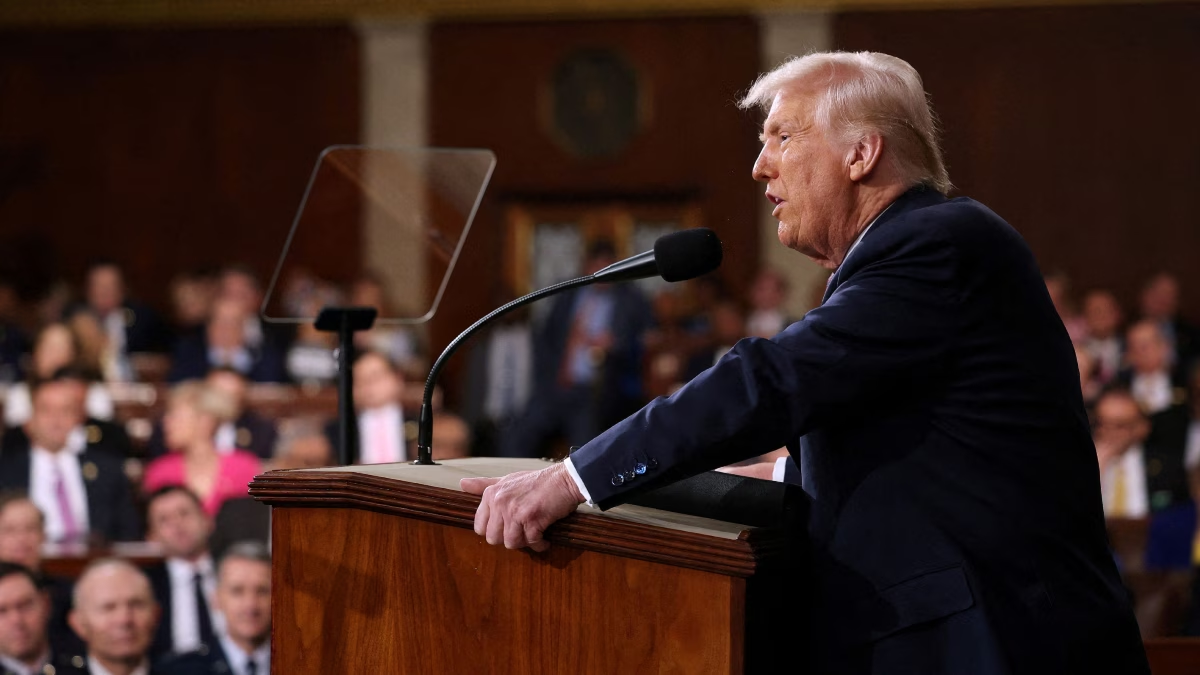In his recent State of the Union address, President Donald Trump adopted a dual approach towards South Asia, extending gratitude to Pakistan for its cooperation in counterterrorism efforts while criticizing India for its trade practices. These remarks shed light on the evolving dynamics of U.S. foreign policy in the region.
Acknowledgment of Pakistan’s Cooperation
President Trump specifically thanked Pakistan for its assistance in apprehending a terrorist involved in the 2021 Kabul airport bombing. He stated, “I want to especially thank the Pakistani government for helping arrest this monster.” This acknowledgment signifies a positive turn in U.S.-Pakistan relations, emphasizing collaborative efforts in combating terrorism.
Criticism of India’s Trade Policies
In contrast, President Trump criticized India for imposing high tariffs on American goods. He announced that, starting April 2, the United States would implement reciprocal tariffs to counter these measures. Trump remarked, “India and others charge the US huge tariffs. On April 2, reciprocal tariffs will kick in.” This move reflects ongoing trade tensions between the two nations and underscores the administration’s commitment to addressing perceived trade imbalances.
Implications for U.S. Foreign Policy
These contrasting positions highlight a nuanced U.S. foreign policy approach in South Asia:
-
Strengthening Counterterrorism Partnerships: By acknowledging Pakistan’s role in combating terrorism, the U.S. aims to reinforce collaborative security efforts in the region.
-
Addressing Trade Imbalances: The criticism of India’s tariff policies and the announcement of reciprocal measures indicate a firm stance on achieving fair trade practices.
Conclusion
President Trump’s address reflects a strategic balance in U.S. relations with South Asian countries, combining appreciation for security collaborations with assertiveness on economic issues. As these policies unfold, they will significantly influence diplomatic and economic engagements in the region.
Dont Miss Out:
Why Is Bill Gates Selling Microsoft Shares to Invest in McDonald’s? Read more:
